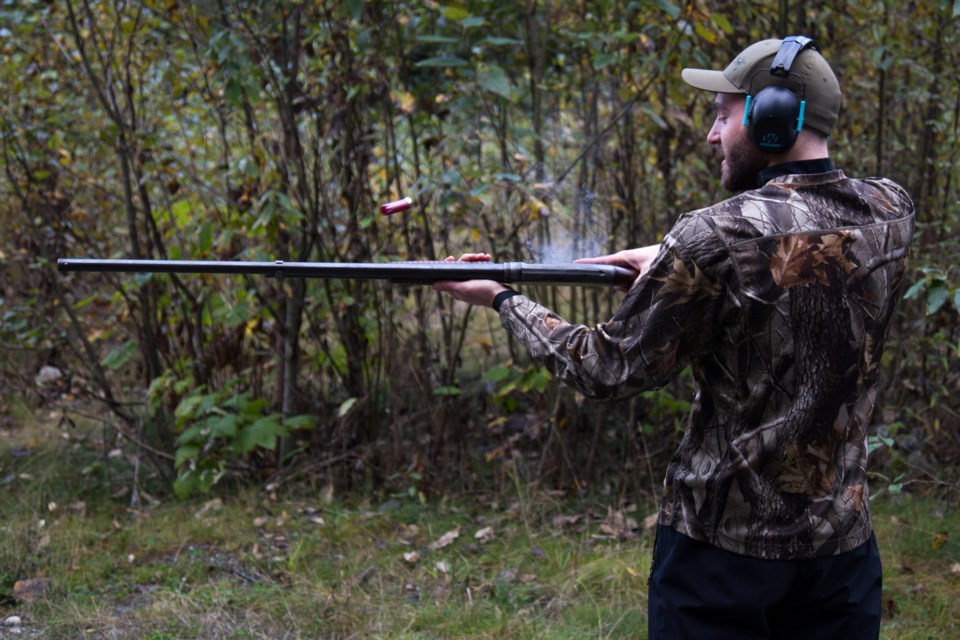When the federal Liberal government introduced Bill C-21 this week I was torn.
Is this reliable old political dog-whistle issue meant to distract from the turbulence of the federal COVID response, or are federal COVID response challenges to distract from this reliable old political dog-whistle issue.
Either way, Prime Minister Justin Trudeau made campaign promises on gun control - promises that became all the more obvious in their absence after the tragic mass shooting in Nova Scotia that left 22 people dead almost a year ago – and now he is, apparently, trying to deliver.
Among other things, the proposed legislation:
- Includes a “red flag” system that will allow anyone to ask a court for an order to immediately remove firearms for up to 30 days from a person who poses a danger to themselves or others;
- Increases maximum penalties for firearms trafficking, smuggling and other firearms offences from 10 to 14 years imprisonment;
- Provide $250 million over 5 years- starting in 2021-22 –to municipalities and Indigenous communities to support anti-gang programming and prevention programs for youth-at-risk;
- Makes it an offence to alter a cartridge magazine to exceed its lawful capacity, with a maximum penalty of five years imprisonment on indictment for more serious cases, or two years-less-a-day and/or a fine of $5,000 on summary conviction for less serious cases;
- Bans import and sale of replica firearms, while allowing current owners to keep them;
- Offers but does not make mandatory a federal buy-back program for previously banned “assault-style” firearms;
Most significantly, the legislation would allow individual municipalities to put in place handgun bans within their jurisdictions. Cities like Vancouver could ban handguns with bylaws restricting their possession, storage and transportation. Mayor Kennedy Stewart has already embraced the idea, and why not? While only three per cent of violent crimes in Canada in 2016 involved firearms, most of those were in large urban areas including Toronto and Vancouver.
In rural areas, gun ownership is overwhelmingly for hunting. In cities, the only thing most people hunt is other people.
So understandably, 41 per cent of urban people are concerned with gun crime in their communities, compared to 28 per cent of rural people, according to a survey published last year in Policy Options magazine.
Is the possibility of municipal gun bans a logistical nightmare? Sure is.
Would it be an administrative clusterfuck? No doubt.
Does it offload responsibility – and therefore costs – onto already financially struggling municipal governments? You bet.
Does it fail completely to address the issue of illegal handguns? Check.
Does it create a patchwork of rules and leap-frog reluctant provincial governments (including Saskatchewan, which has actual legislation against this very thing) and set up a jurisdictional spat that will outlast the current government? Sure does.
But the proposed legislation recognizes there are issues – gun control being one of them – on which there is no reconciliation of urban and rural interests.
What Bill C-21 offers is a means for metro regions like Vancouver to address a grave concern without subjecting rural areas where firearms have an entirely different culture to the ill-fitting will of the many.
Urban and rural interests are unique in many ways. While about 60 per cent of British Columbia’s population is concentrated in large population centres, almost 40 per cent live in medium or small centres or rural areas. You cannot discount the needs of 40 per cent of the population.
By acknowledging these differing cultures, the federal gun legislation opens the door for all governments to differentiate.
Take graduated driver licencing, for example. For teens in urban areas with multiple transportation options, it makes sense. Yet in rural areas with few, if any, public transportation options, it means many teens – mostly working-class with two working parents – can’t take part in sports, other extracurricular activities or jobs that help them save for post-secondary studies.
Or take building codes, home insurance, perhaps even public health measures during a global pandemic. It doesn’t take much imagination to see how different any of these are vastly different beyond the 604.
The proposed firearms legislation is muddled and problematic. It will not move quickly through the labyrinthine process of becoming law, and may not make it all as is. But at least it’s an innovative attempt to acknowledge the social, economic, historic, and cultural differences not served by catering to the vocal majority.
Whether or not Bill C-21 manages to make its way into law, it’s an idea with promise.
Dene Moore is an award-winning journalist and writer. A news editor and reporter for The Canadian Press news agency for 16 years, Moore is now a freelance journalist living in the South Cariboo. Moore’s two decades in daily journalism took her as far afield as Kandahar as a war correspondent and the Innu communities of Labrador. She has worked in newsrooms in Vancouver, Montreal, Regina, Saskatoon, St. John’s and Edmonton. She has been published in the Globe and Mail, Maclean’s magazine, the New York Times and the Toronto Star, among others. She is a Habs fan and believes this is the year.
SWIM ON:
- Dene Moore last wrote about the tragedy of the steel-skinned woman who fell to Earth.
- Last July, Mark Milke wrote about the idea of defunding the police - and that it's wrong-headed.
- We shouldn't be too quick to condemn policing - and police officers, says Anil Anand.



